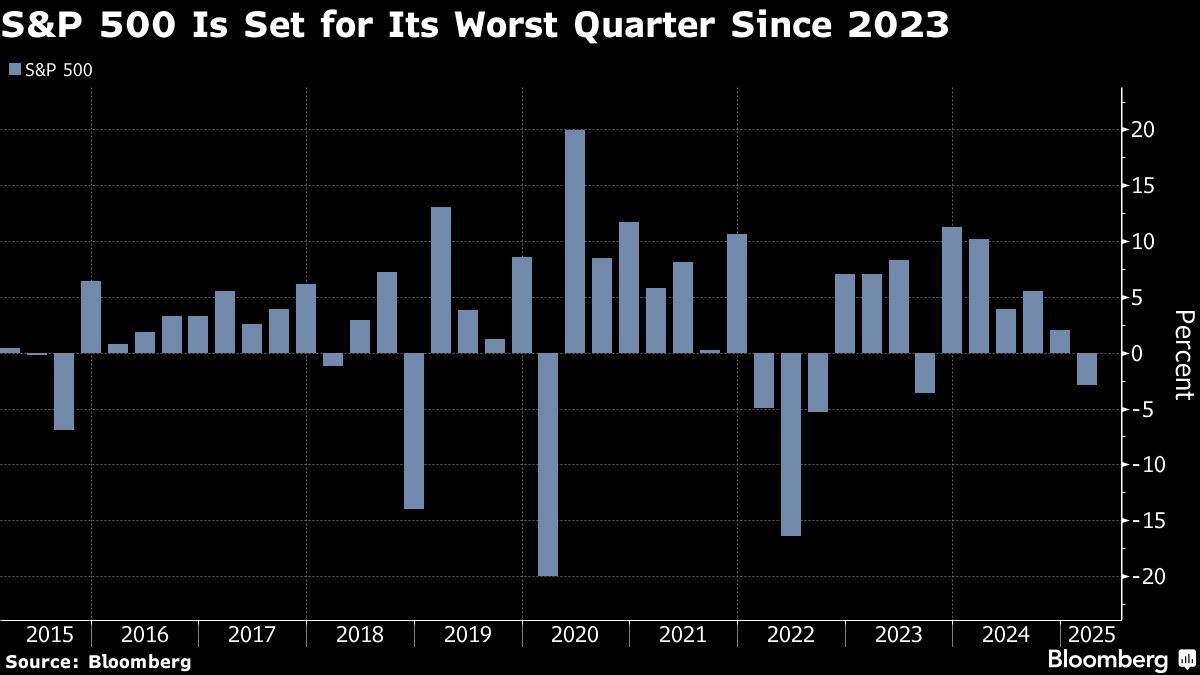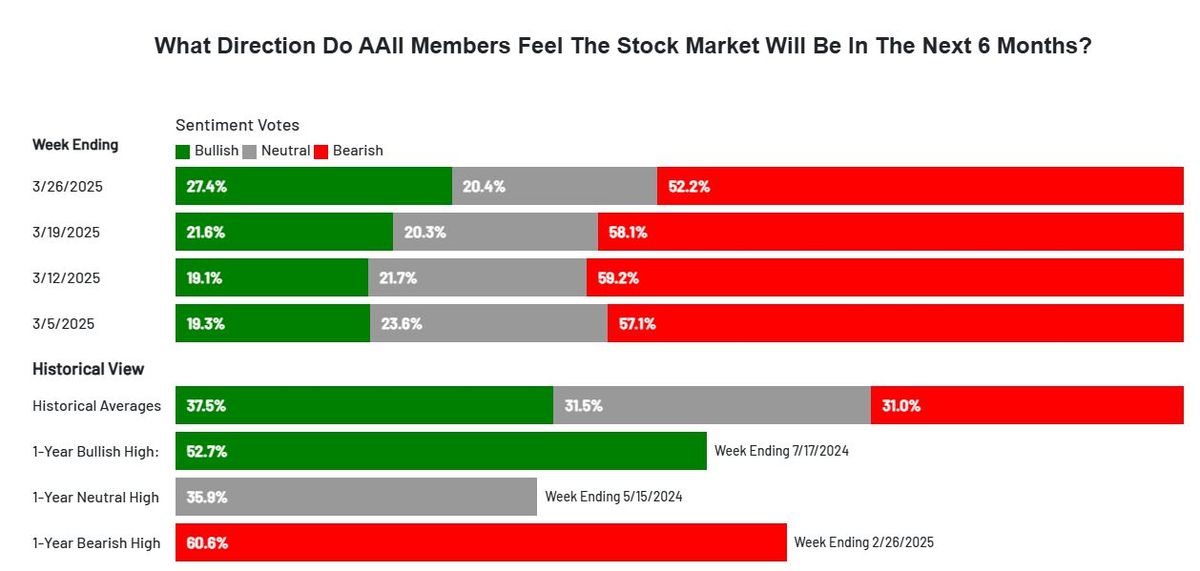
(March 28): Stocks fell after the US pushed ahead with tariffs on automakers, reinforcing concern about a widening trade war and offsetting data that showed faster-than-estimated growth in the world’s largest economy.
Just days before the end of a quarter that’s set to be the worst for the S&P 500 since 2023, the gauge slipped anew. Car giants from Toyota Motor Corp to Mercedes-Benz Group AG and General Motors Co got hit. AppLovin Corp sank on a short report from Muddy Waters. Megacaps were mixed, with Apple Inc up and Nvidia Corp down. In late hours, Lululemon Athletica Inc gave a gloomy outlook. The bond market flashed concerns about inflation as short-dated Treasuries outperformed longer ones.
President Donald Trump signed a proclamation to implement a 25% tariff on auto imports and pledged harsher punishment on the EU and Canada if they join forces against the US. The move overshadowed data showing the economy expanded at a quicker pace in the fourth quarter than previously estimated. A measure of inflation was revised lower.
To Bret Kenwell at eToro, the data won’t act as a major confidence boost for investors as their focus is firmly planted in the current economic landscape rather than the one from a few months ago.
“Investors will want to see in-line or better inflation results and a strong employment number to gain some reassurance,” he said.
Inflation remains at a disquieting level for the Federal Reserve (Fed). And Friday’s personal consumption expenditures price index is forecast to show signs of stickiness.
The S&P 500 lost 0.3%. The Nasdaq 100 fell 0.6%. The Dow Jones Industrial Average slid 0.4%.
The yield on 10-year Treasuries rose one basis point to 4.36%. The dollar wavered.
Friday’s inflation data will provide a snapshot of price pressures and economic activity leading up to Trump’s planned April 2 announcement on reciprocal tariffs — which he has dubbed “Liberation Day in America.”
General uncertainty about the impact of the duties help explain why Fed officials kept interest rates unchanged last week.
“The threat of further tariff escalation remains a key concern, but our economic forecasts do not call for a recession in the US,” said Mark Haefele at UBS Global Wealth Management.
For markets, the question is whether anything will be able to rise above the tariff noise, according to Chris Larkin at E*Trade from Morgan Stanley.
“In the near term, the most likely scenario is more choppy trading, he said.
To Craig Johnson at Piper Sandler, despite the heightened uncertainties surrounding tariffs and inflation, there are technical signals suggesting an intermediate-term low may be in place.
“While the path to a more meaningful recovery is often not a straight line upward, it appears that equities have found some footing off the March lows from which to build upon in the upcoming weeks,” he said.
Pessimism among individual investors about the short-term outlook for stocks decreased in the latest sentiment survey from the American Association of Individual Investors. Meanwhile, optimism and neutral sentiment increased.
“With stocks getting a respite from the selling last week and into early this week, we expected some subsiding of the extremely high levels of bearish sentiment in the weekly survey from the AAII,” said Bespoke Investment Group strategists.
Bespoke noted that while bearish sentiment dropped, this week’s reading was still above 50% — and higher than 96.8% of all prior weekly readings since 1987.
US equities will soon regain their long-held edge over European peers as the brighter outlook for the old continent’s stocks is limited to sectors such as defence and banks, according to Jean Boivin, the head of the BlackRock Investment Institute.
“This is a pretty narrow European story,” Boivin said in an interview. “There’s no strong conviction yet to play Europe over the US over a six-to-12 month horizon. We need to see more fiscal impetus beyond defence and implementation will be key.”
Some of the main moves in markets:
Stocks
- The S&P 500 had fallen 0.3% as of 4pm New York time
- The Nasdaq 100 fell 0.6%
- The Dow Jones Industrial Average fell 0.4%
- The MSCI World Index fell 0.4%
Currencies
- The Bloomberg Dollar Spot Index was little changed
- The euro rose 0.4% to US$1.0795
- The British pound rose 0.5% to US$1.2950
- The Japanese yen fell 0.3% to 151.04 per dollar
Cryptocurrencies
- Bitcoin fell 0.3% to US$87,052.04
- Ether fell 0.3% to US$2,004.22
Bonds
- The yield on 10-year Treasuries advanced one basis point to 4.36%
- Germany’s 10-year yield declined two basis points to 2.77%
- Britain’s 10-year yield advanced six basis points to 4.78%
Commodities
- West Texas Intermediate crude rose 0.2% to US$69.79 a barrel
- Spot gold rose 1.3% to US$3,057.49 an ounce
Uploaded by Isabelle Francis
- Earthquake of magnitude 7 strikes Tonga islands, German research centre says
- Muslims in Malaysia celebrate Aidilfitri on Monday
- China's biggest state banks to raise US$71.6b to boost capital
- Japan to give crypto assets legal status as financial products, Nikkei says
- Unity must be preserved with utmost care, says King, Queen in Aidilfitri message
- The perfect place to embrace it all awaits you.
- China's biggest state banks to raise US$71.6b to boost capital
- Myanmar quake death toll hits 1,700 as aid scramble intensifies
- Japan to give crypto assets legal status as financial products, Nikkei says
- Toshiba elevators and escalators: Safety, technology, quality


